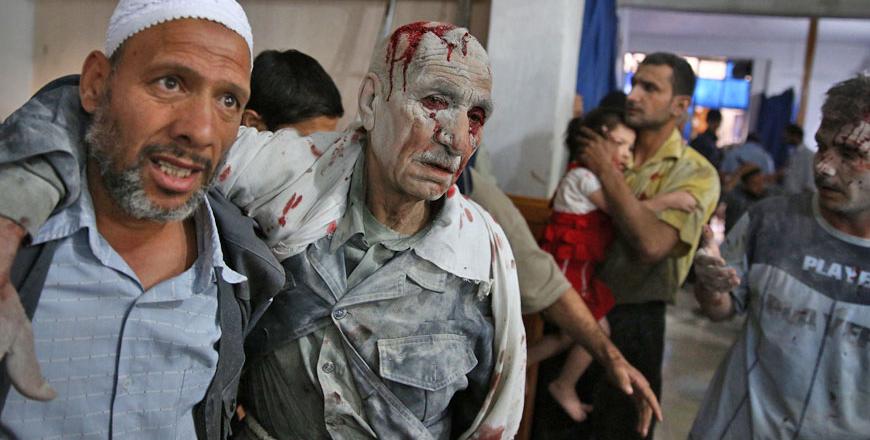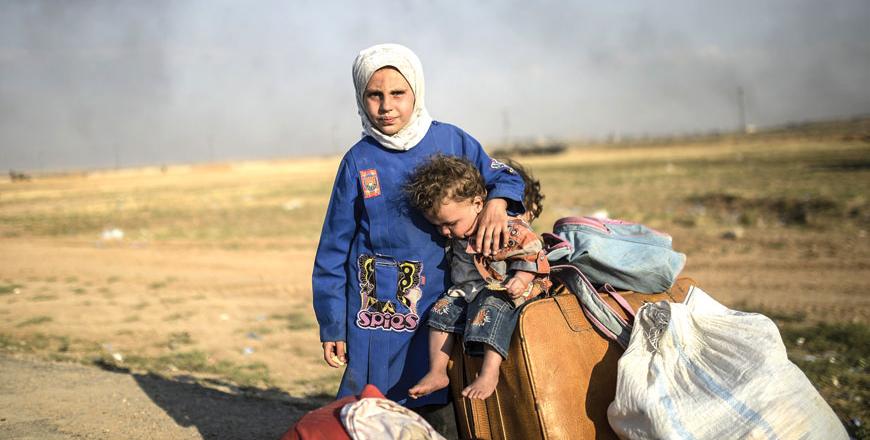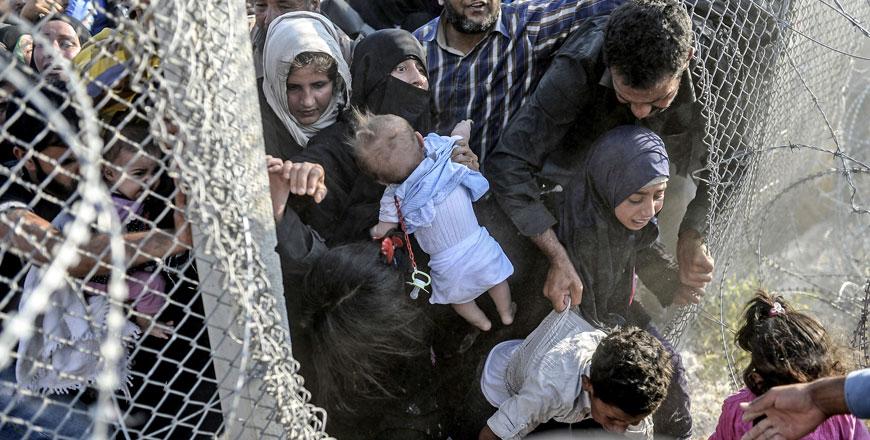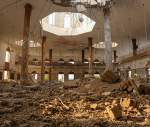You are here
Kurds cut road to Daesh ‘capital’ in battle for Syrian border town
By AFP - Jun 16,2015 - Last updated at Jun 16,2015
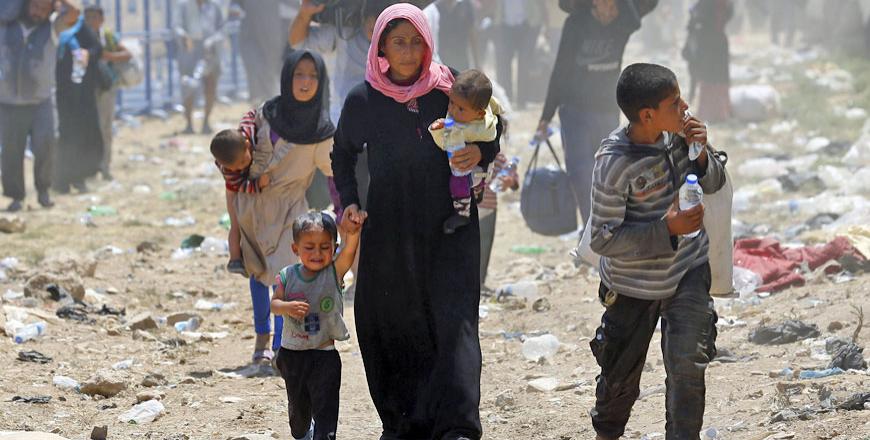
Syrian refugees walk to cross into Turkey at Akcakale border gate in Sanliurfa province, Turkey, on Sunday (Reuters photo)
Akçakale, Turkey — Syrian Kurdish fighters on Monday cut a key supply line to the Daesh terror group's de facto capital Raqqa as they battled to seize the militant-held border town of Tal Abyad.
The Kurdish People's Protection Units (YPG) said their forces and affiliated Syrian rebel fighters approaching from east and west of Tal Abyad had connected and cut the road south to Raqqa.
"Tal Abyad is completely surrounded," said YPG Commander Hussein Khojer.
"There is nowhere Daesh can escape to," he said.
Khojer said Kurdish fighters, backed by Syrian rebel groups, had advanced on Tal Abyad in a two-front offensive from east and west.
Sherfan Darwish, a spokesman for the Burkan Al Furat rebel group fighting alongside the YPG, said the anti-Daesh alliance was now on the eastern and southern outskirts of Tal Abyad.
"There are ongoing clashes and the bodies of 19 Daesh fighters are on the outskirts of Tal Abyad," he said.
The advance is a blow to the jihadist group, which is battling to hold onto Tal Abyad and preserve its main supply line between Raqqa and the Turkish border.
Kurdish fighters and Syrian rebels began their main advance on Tal Abyad on June 11, backed by air strikes from the US-led coalition fighting Daesh.
The clashes have prompted thousands of civilians to flee, with some 16,000 crossing into Turkey since last week, despite sporadic border closures.
The flood of refugees has created chaos at times, with some cutting through the border fence or scrambling over loops of barbed wire in frustration at the delay in crossing.
Parents passed screaming children over one section of trampled fencing, and a mother grasped her baby by one arm, a pacifier dangling from its neck.
‘Lifeblood channel’ for Daesh
Tal Abyad lies some 85 kilometres north of Raqqa, and analysts say it serves as a primary conduit for incoming weapons and fighters, as well as for outgoing black market oil.
“It has been an IS [Daesh] stronghold for a while now and it has been described as the gateway to Raqqa,” said Charlie Winter, a researcher on jihadism at the London-based Quilliam Foundation.
“Certainly, it’s of strategic importance because it’s a border town through which equipment, recruits, etc can pass.”
Tal Abyad is also just 70 kilometres east of the Kurdish-majority town of Kobane, where Kurdish forces battled for months before expelling invading Daesh forces in January.
Tal Abyad serves as the “main lifeblood channel for Daesh,” connecting Raqqa city to the outside world, said Mutlu Civiroglu, a Kurdish affairs analyst.
“Tal Abyad is a financial and logistical hub for Daesh. Once you cut this hub it is going to be very hard for Daesh to smuggle in fighters, to sell oil and deal in the other goods they deal in.”
Kurdish forces have been chipping away at Daesh territory in Raqqa province — once completely under the jihadist group’s control — for around three months.
According to the Syrian Observatory for Human Rights monitoring group, they have seized some 50 towns and villages in the province.
Winter said he expected Daesh to fight hard to keep the strategic town and to mine it heavily.
“I don’t think they’ll give up without a fight.”
Turkey fears of Kurdish rise
The Kurdish advance has prompted criticism from Turkey, where the YPG-linked Kurdistan Workers Party (PKK) fought a decades-long insurgency and is listed as a “terrorist” group.
Nihat Ali Ozcan, an analyst at the Ankara-based TEPAV think tank, said Ankara was concerned about rising “separatist sentiment” among Kurds in Turkey’s southeast.
“If Tal Abyad is seized by Kurds, after Kobane’s liberation, Kurds might emerge as a fighting force against Turkey,” Ozcan said.
The Kurdish advance has also prompted allegations of “ethnic cleansing” by some Syrian rebel groups who say YPG forces are expelling Sunni Arabs and Turkmen from the area.
Kurdish forces reject those allegations, saying they have only asked civilians to evacuate potential battle zones to avoid casualties.
Related Articles
BEIRUT — Daesh militants re-entered Syria’s Tal Abyad Tuesday, seizing a district from the Kurdish forces who captured the border town in a
AKÇAKALE, Turkey — Kurdish fighters seized control Tuesday of a key border town from the Daesh terror group, cutting a major supply line in
SANLIURFA, Turkey/BEIRUT — Kurdish-led militia backed by US-led air strikes fought Daesh militants near a Syrian town at the Turkish border


